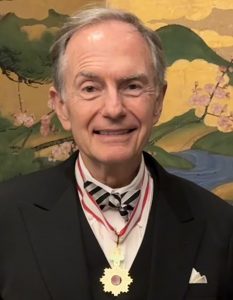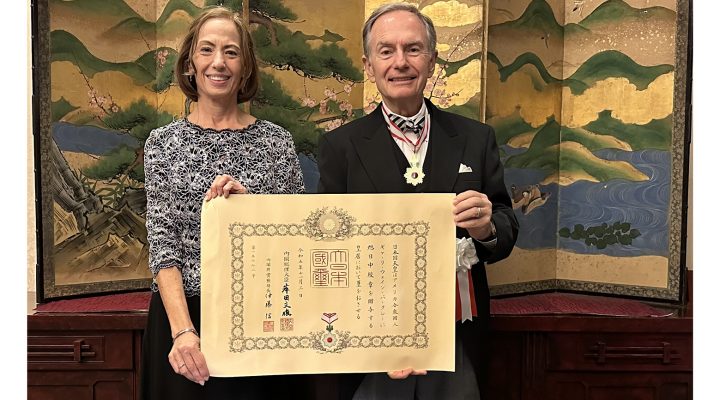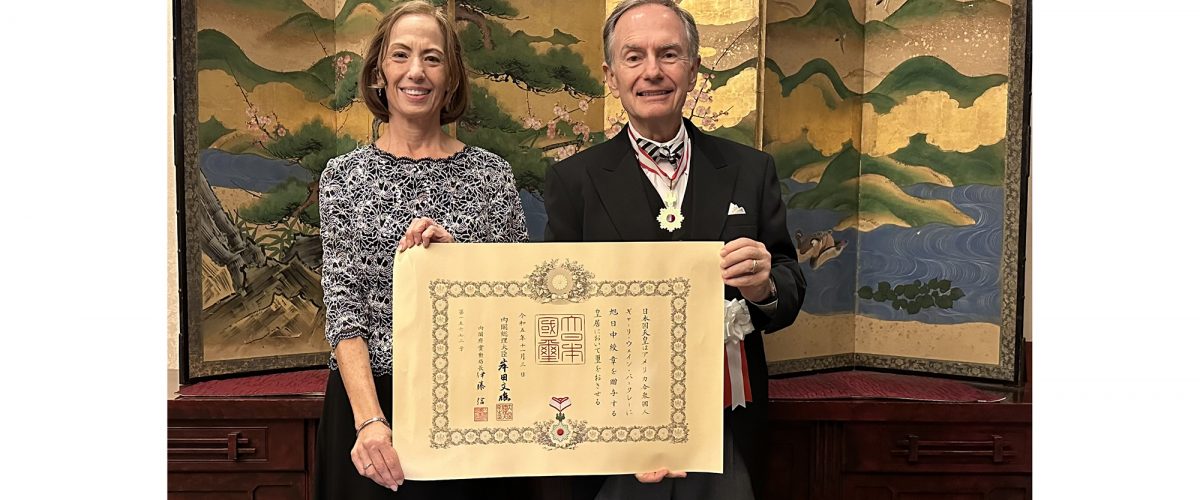Decades in Japan revealed Gary Barkley’s approach to evangelism was better suited for Japanese culture than for the Southern Baptist Convention, which appointed him as a teaching missionary to the island nation in 1984.
“I always felt it was my responsibility and my calling to witness the gospel by being a living example of what being a Christian could be, and that it is the work of God and the Holy Spirit to make professions of faith,” said Barkley, who retired this year from Seinan Gakuin University in Fukuoka, a coastal city located nearly 100 miles northeast of Nagasaki.
Barkley’s earlier years at the university were spent teaching in the school of theology that serves as the seminary for the Japan Baptist Convention. He would go on to serve as dean of religious affairs, president, chancellor and chairman of the board. He retired in March and now lives in Birmingham, Ala.
But it was during the fundamentalist ascendancy in the SBC that the demands of Barkley’s calling and the expectations of the SBC Foreign Mission Board had grown apart. It was around the time when the board was beginning to require all its missionaries engage in evangelism and to sign the Baptist Faith and Message 2000.
Barkley said he was offered a direct-hire position at the university in 2002, which enabled him to avoid the board’s demands. “They told us we were welcome to come back to Japan, but not teach full-time at Seinan (Gakuin University). My conflict was that I was called to be an educator and sent to be an educator, not starting house churches as they wanted us to do.”
“My conflict was that I was called to be an educator and sent to be an educator, not starting house churches as they wanted us to do.”
The calling that guided Barkley throughout his career evolved incrementally for the Nashville native as his higher education progressed.
His freshman year was at Emory University before transferring to Samford University. “I felt led into ministry but didn’t know what that meant as a college freshman,” he said. “I thought I’d be a pastor, but I also sensed I might want to teach if possible.”
Things came into more focus after an encounter with Glenn Hinson, a church historian at Southern Baptist Theological Seminary then delivering a lecture series at Samford. That led Barkley to seminary work at Southern where he found even more clarity from professors like Bill Leonard. “I just fell in love with church history,” he said.
But it was Hinson who prodded Barkley to consider overseas work. “He kept nudging me that I could teach somewhere other than the U.S. It opened my eyes. So, I wrote a letter to the Foreign Mission Board requesting to teach church history. We decided if they will send us, we will go.”
Barkley and his wife, Carolyn, were appointed to Japan in May 1984 and arrived there that October. After a two-year stint in Tokyo, they were appointed to Seinan Gakuin University in April 1987. “The university was founded by SBC missionaries in 1916,” he said.
In Japan, Carolyn Barkley used her skills as a CPA to do the books of the mission and to oversee the finances of a small international school in Fukuoka. After they left the FMB, she earned an online master of education degree and subsequently taught at the international school.
At Seinan Gakuin, Barkley taught subjects including Christianity and church and Baptist history before serving as dean of religious affairs from 2003 to 2006. He later served as president of the university from 2006 to 2014 and then as chancellor. Finally, he was elected chairman of the board.

Gary Barkley
Under his leadership, the number of disciplines and foreign language programs offered by the university increased, as did its partnerships with other schools and the scope of its international exchange program, he explained. “We have no debt even after rebuilding the library, administration building and graduate school building and opening a state-of-the-art learning center and gymnasium. Enrollment increased from 6,500 to 8,000.”
For those and other accomplishments during his tenure at Seinan Gakuin University, Barkley was this year awarded the Order of the Rising Sun, a decoration the Japanese government bestows on recipients who have rendered distinguished non-military contributions to the nation.
“I was given the award for contributions to higher education in Japan after 12 years as president and almost eight years as board chair. The school recommended me for the award.”
Barkley’s accomplishments are nothing short of remarkable given they took place in a foreign culture and during and after a period of denominational upheaval, said Leonard, founding dean and the James and Marilyn Dunn professor of Baptist studies and church history emeritus at Wake Forest University School of Divinity in Winston-Salem, N.C.
“I find him in an amazing international role the Southern Baptists would never have intended one of their own to have. When right-wing folks took over, they decided to no longer appoint teaching missionaries, only evangelists who would be direct witnesses to build churches.”
In 1988, Leonard and his family spent a sabbatical year in Japan to temporarily replace the Barkleys, who were on sabbatical in the U.S. It was an opportunity to witness the diversity and depth of Baptist Christians, Leonard said. “I taught intro to church history with a wonderful translator. He was a Baptist Pentecostal who spoke in tongues. It was a wonderful experience.”
Barkley said he also learned a lot about Christianity and Baptists from the Japanese: “Japan infused my theology with the sense that God’s grace is greater than what we want to give him credit for.”
And despite the diversity in their views about women in ministry, the Social Gospel and the role of evangelism, Japanese Baptists and other Christians generally share a vision of the compassionate Christ, he said.
“There is more empathy with the human side of Jesus than the Christ triumphant. Japanese Christians identify more with the suffering of Jesus. They don’t ignore that the triumphant kingdom will come, but it’s the hungry, thirsty, tired, suffering Jesus they identify with more.”


